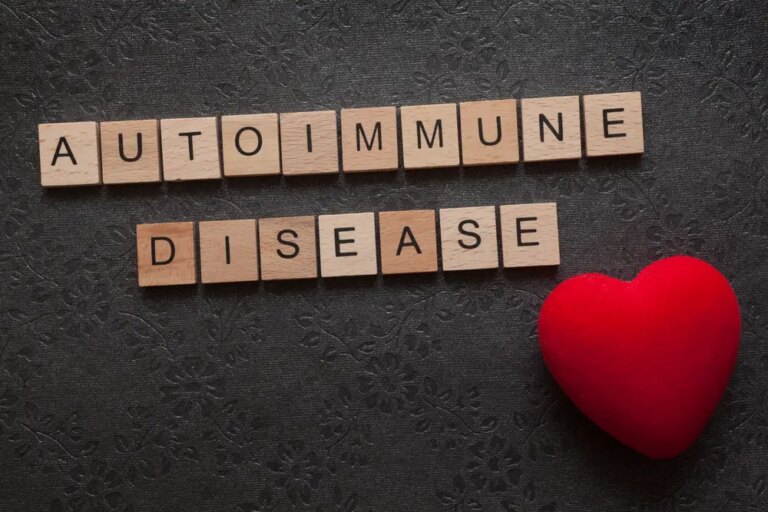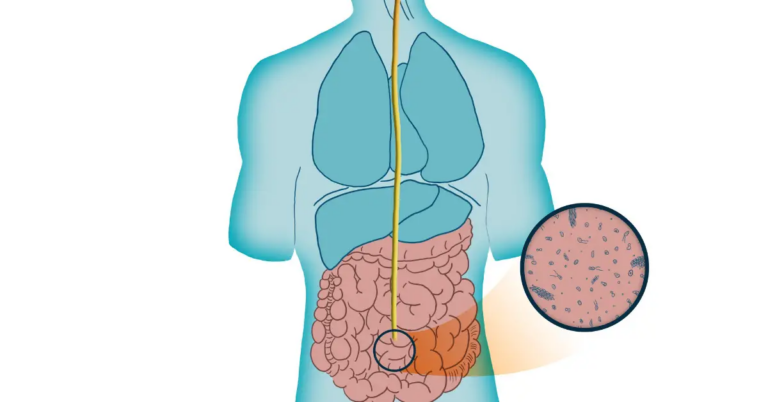The connection between gut health and mental well-being has long been the subject of scientific curiosity, but recent research is shedding new light on just how deeply intertwined they might be. Specifically, studies are now revealing that loneliness, an emotion that can significantly impact mental and physical health, is related to the diversity of the gut microbiome. This link suggests that gut health could influence emotions like loneliness and even traits such as wisdom and compassion.
The Gut Microbiome: More Than Just Digestion
The gut microbiome, an intricate community of microbes residing in our digestive tract, extends its influence far beyond digestion. This complex ecosystem plays a pivotal role in several critical areas of health, proving how important it is to maintain a balanced gut flora.
Firstly, the gut microbiome is essential for robust immune system function. It houses approximately 70% of our immune cells, which interact constantly with the resident microbes. These interactions help prime our immune defenses, enhancing our ability to ward off infections and reduce inflammation. A well-balanced microbiome thus acts as a frontline defender, maintaining our health and protecting against various diseases.
Moreover, the gut-brain axis presents a groundbreaking area of research, illustrating how gut health impacts cognitive function and emotional well-being. Microbes in the gut produce neurotransmitters and other chemicals that communicate with the brain, influencing our mood, stress levels, and even behaviors. This connection is so influential that disturbances in the microbiome have been linked to neurological conditions like Alzheimer’s and Parkinson’s disease, highlighting a critical area for potential therapeutic intervention.
In addition to immune and neurological impacts, the microbiome also plays a role in metabolic processes and overall inflammation in the body. An imbalance in gut bacteria can lead to increased systemic inflammation, contributing to a host of chronic conditions, including metabolic syndrome and type 2 diabetes. This is why dietary choices and lifestyle factors are important in maintaining microbial balance and overall health.

The Gut-Brain Axis
The gut-brain axis is a sophisticated communication network that directly links the gut microbiome to the brain. It has become clear that the gut and brain are not isolated entities – they constantly exchange signals that affect both mental and physical health. This two-way interaction is regulated by several systems in the body, including the nervous, hormonal, and immune systems. The gut, often called the “second brain,” communicates with the central nervous system, influencing emotions, cognitive functions, and stress responses.
The gut-brain connection is primarily mediated through various neurochemicals produced in the gut, where a significant portion of the body’s neurotransmitters, such as serotonin, are manufactured. Serotonin is pivotal for mood regulation, and its levels are heavily influenced by the bacteria residing in our gut. An imbalance in these bacteria can lead to a serotonin deficiency, manifesting as depression or anxiety. Similarly, other neurotransmitters produced in the gut play roles in cognitive functions such as learning and memory, suggesting that our gut health could be a key player in preventing cognitive decline.
Furthermore, research indicates that the gut-brain axis may contribute to the pathophysiology of several neurodegenerative and mental health conditions. For instance, inflammation driven by gut dysbiosis (a microbial imbalance) can affect the brain, potentially accelerating conditions like Alzheimer’s and Parkinson’s diseases. This inflammation can propagate through the central nervous system, influencing neurodegeneration and cognitive impairment.
The role of the gut-brain axis in mental health is equally compelling. Stress and anxiety can alter gut bacteria, which in turn affect the brain, creating a cycle that can exacerbate gastrointestinal conditions like irritable bowel syndrome (IBS) and impact mental well-being.
The Link Between Loneliness and Gut Diversity
The growing issue of loneliness has become more than just a social concern – it is now recognized as a significant public health problem. Recent studies have revealed that loneliness isn’t just an emotional experience but can also have profound effects on physical health, particularly through its impact on gut diversity. Research has shown that individuals who experience chronic loneliness often have a less diverse gut microbiome compared to those who report feeling more connected socially. This discovery suggests that the state of our gut may not only reflect but also influence our emotional and social well-being.
In a study conducted by the University of California, San Diego, researchers found a strong correlation between loneliness and gut health. They analyzed the gut microbiomes of participants and discovered that individuals who reported feeling more lonely had reduced microbial diversity. This lack of diversity has been linked to poor health outcomes, including increased inflammation, which can worsen feelings of isolation and contribute to a cycle of deteriorating physical and mental health.
On the flip side, participants who exhibited higher levels of social support, wisdom, and compassion showed a more robust and diverse gut microbiome, indicating that positive social behaviors and emotional well-being might help promote a healthier gut.
What makes this connection even more concerning is that loneliness, when combined with reduced gut diversity, may leave individuals more susceptible to chronic diseases. Low gut microbial diversity has been associated with various conditions like obesity, inflammatory bowel disease, and major depressive disorder. As a result, understanding the relationship between loneliness and gut health opens up new avenues for interventions that target both emotional and physical health.

How Social Interactions Influence Microbial Diversity
One of the most fascinating aspects of the relationship between social interactions and gut health is the way that social behaviors seem to influence microbial diversity. Research has shown that people with rich social lives and strong support systems tend to have a more diverse gut microbiome. This diversity is thought to offer protection against various health issues and promote overall well-being. For example, studies have indicated that married couples often share similar gut microbiomes, likely because of shared environments and habits, which contribute to their microbial diversity. The same is true for people living in close-knit social circles.
This connection suggests that positive social interactions may help maintain or even improve gut health. The more diverse a person’s social network, the greater the variety of microbes they are likely to encounter and host, contributing to a healthier gut. This, in turn, can enhance emotional resilience, leading to better social interactions. It’s a feedback loop that highlights how our social environments can directly influence our gut and, consequently, our mental health.
Interestingly, research has also pointed out that individuals who experience social isolation or loneliness are more likely to have a lower microbial diversity, particularly as they age. Older adults, who are often more prone to loneliness, are especially vulnerable to the health consequences of reduced gut diversity. Therefore, fostering social engagement and support networks may not only improve emotional well-being but also promote better gut health.

My Personal RX on Enhancing Mental Resilience via Gut Health
Maintaining a healthy gut is key to building mental resilience because the gut and the brain are closely connected. When our gut health is good, it helps to keep our mood stable and reduces stress, making us feel better equipped to handle life’s ups and downs. A balanced gut can directly impact our emotional well-being by affecting how we feel day-to-day. Simple practices like eating a diverse diet rich in fiber, staying hydrated, and managing stress can strengthen our gut health, which in turn, supports our mental resilience, helping us stay emotionally strong and responsive. Here are a few practical tips I recommend for optimizing your gut health:
- Increase Fiber Intake: Eating a diet rich in fiber—such as fruits, vegetables, and whole grains—promotes the growth of healthy bacteria in your gut, enhancing microbial diversity and supporting mental resilience.
- Incorporate Probiotics and Prebiotics: Balancing your gut microbiome is crucial for emotional and mental well-being. A supplement like MindBiotic can optimize the gut-brain axis with its combination of probiotics, prebiotics, and Ashwagandha KSM 66, known for its stress-relieving properties.
- Stay Active: Regular physical activity not only boosts your mood but also encourages the growth of beneficial gut bacteria. Aim for at least 30 minutes of exercise most days of the week to maintain both emotional and gut health.
- Practice Mindful Eating: Eating mindfully—taking time to chew food thoroughly and savor your meals—can improve digestion and increase gut diversity, while also reducing stress.
- Limit Processed Foods: Highly processed foods can disrupt the balance of your gut microbiome. Opt for natural, whole foods to keep your gut and brain in sync.
- Stay Hydrated: Proper hydration is essential for maintaining a healthy gut. Drinking plenty of water helps keep the digestive system functioning smoothly, which in turn supports emotional balance.
- Get Plenty of Sleep: Quality sleep is essential for both your gut and your brain. Aim for 7-8 hours of restful sleep each night to support gut health and reduce feelings of loneliness.
- Manage Stress: Chronic stress can harm your gut health. Incorporating relaxation techniques like meditation or yoga can reduce stress and promote a healthier gut-brain connection.
- Consider Fermented Foods: Foods like yogurt, kefir, and sauerkraut are rich in probiotics and can help support a diverse gut microbiome, contributing to better mental health and reducing feelings of loneliness.
- Understand Your Gut Better: Understanding your gut is key to making personalized improvements. Take my Gut Health Quiz to gain insights and get tailored recommendations for improving your gut health.
Sources:
- Nguyen, T. T., Zhang, X., Wu, T., Liu, J., Le, C., Tu, X. M., Knight, R., & Jeste, D. V. (2021). Association of Loneliness and Wisdom with Gut Microbial Diversity and Composition: An Exploratory study. Frontiers in Psychiatry, 12. https://doi.org/10.3389/fpsyt.2021.648475
- Dill-McFarland, K. A., Tang, Z., Kemis, J. H., Kerby, R. L., Chen, G., Palloni, A., Sorenson, T., Rey, F. E., & Herd, P. (2019). Close social relationships correlate with human gut microbiota composition. Scientific Reports, 9(1). https://doi.org/10.1038/s41598-018-37298-9












 Subscribe to Ask Dr. Nandi YouTube Channel
Subscribe to Ask Dr. Nandi YouTube Channel









